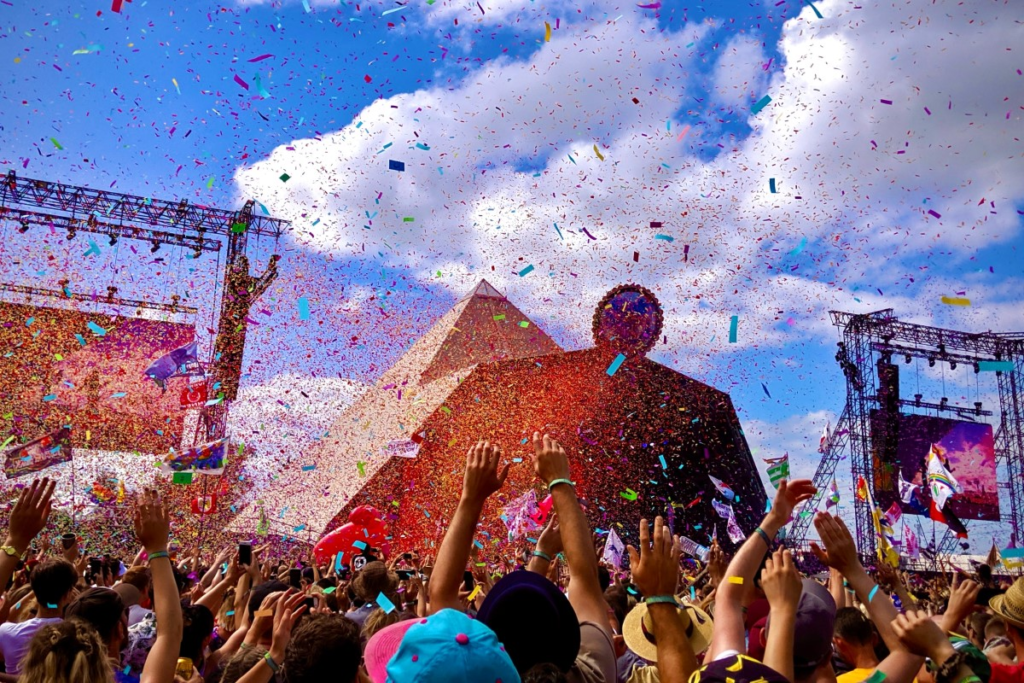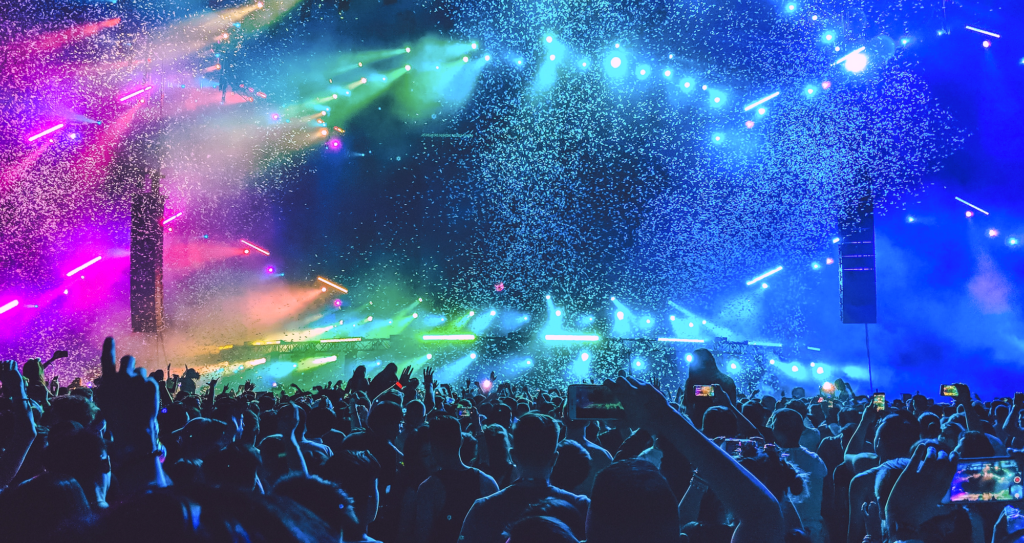
Introduction to Music Festivals
Music festivals have long been a vibrant celebration of sound, art, and community. They draw people from all walks of life, uniting them under the stars for unforgettable experiences. But as our world evolves, so too do these iconic events. Today’s music festivals are not just about headlining acts and food trucks; they are dynamic environments that embrace modern trends and cutting-edge technology.
From immersive experiences to sustainability initiatives, festival organizers are reimagining what it means to gather in harmony. With advancements like cashless payments and mobile apps enhancing convenience, attendees can focus on enjoying the moment rather than worrying about logistics. As we dive into this exploration of how music festivals adapt to contemporary demands, you’ll discover how innovation reshapes everything from ticketing systems to stage designs.
Join us on this journey through the exciting transformations taking place at music festivals around the globe!
The Evolution of Music Festivals
Music festivals have come a long way since their inception in the 1960s. Initially, they were simple gatherings focused on community and free expression. The iconic Woodstock Festival in 1969 set the stage for large-scale events that united thousands of fans under one banner.
As genres diversified, so did festival experiences. In the ’80s and ’90s, electronic music began to dominate with raves popping up worldwide. These events emphasized not just music but also art and culture.
Fast forward to today—music festivals are intricate productions showcasing a blend of talent, technology, and creativity. From sprawling multi-day celebrations to intimate curated experiences, there’s something for everyone now.
The emergence of social media has transformed how people discover these events. Attendees share their journeys online, attracting more participants while shaping festival cultures in real time. Today’s festivals reflect diverse communities through rich programming and inclusive environments that celebrate unity through sound.

Incorporating Modern Trends into Music Festivals
Music festivals are no longer just about music. They have evolved into vibrant cultural experiences that embrace modern trends.
One striking trend is the rise of immersive experiences. Attendees now seek deeper connections with art and music, often through interactive installations or themed environments. These elements create unforgettable memories.
Social media integration plays a significant role too. Festivals encourage sharing moments online, creating a buzz that attracts more attendees each year. Hashtags and photo spots become essential for engagement.
Another exciting development is the incorporation of wellness activities, such as yoga sessions or meditation spaces. This shift recognizes the need for balance in high-energy festival settings.
The focus on diversity and inclusiveness has transformed lineups to include artists from various backgrounds, ensuring everyone feels represented and welcomed at these gatherings.
Technology and its Impact on Music Festivals
Technology has completely transformed music festivals, reshaping experiences for artists and attendees alike. From the moment you arrive, mobile apps enhance your journey. They help with navigation, schedule updates, and even social interactions.
RFID wristbands have replaced traditional tickets. These smart festival wearables streamline entry while enabling cashless payments at food stalls and merchandise booths. No more fumbling with cash or cards; just a quick tap.
The use of immersive experiences is on the rise too. Augmented reality activations add layers to performances that captivate audiences in new ways. Imagine watching a band play while interactive art installations spring to life around you.
Livestreaming performances allow fans who can’t attend to join virtually, breaking geographical barriers. As 5G connectivity emerges, these digital streams offer higher quality than ever before.
Every advancement creates opportunities for unforgettable memories at music festivals like never before.

Virtual and Hybrid Music Festivals
Virtual and hybrid music festivals have emerged as game-changers in the event landscape. These formats combine the excitement of live performances with the accessibility of digital platforms, allowing fans worldwide to participate.
Attendees can enjoy immersive experiences from their homes or opt for a limited in-person attendance. This flexibility broadens audiences and creates new revenue streams for organizers.
With advancements like livestreaming performances, festival-goers can interact through real-time chats or social media integration. It transforms passive viewing into an engaged experience.
Some festivals are even incorporating augmented reality activations, adding layers to the visual spectacle. Imagine being able to see your favorite artist perform while surrounded by interactive art installations right in your living room!
The convenience of digital ticketing systems makes it seamless for fans to join events without hassle. As technology continues to evolve, so too will these innovative festival formats, reshaping what we know about live music experiences forever.
Sustainability in Music Festivals
Sustainability has become a cornerstone of modern music festivals. Organizers are recognizing the need to reduce their environmental footprints while still delivering unforgettable experiences.
Eco-friendly festivals now implement innovative practices, such as waste reduction programs and recycling initiatives. Attendees are encouraged to bring reusable containers and biodegradable products. This simple shift can make a substantial difference.
Green energy solutions also play a vital role. Many events harness solar power or wind energy to run stages and facilities, minimizing reliance on fossil fuels.
Additionally, partnerships with local vendors help support sustainable food sourcing. Farm-to-festival dining options showcase regional cuisine while cutting down transportation emissions.
The use of smart festival wearables further enhances sustainability efforts by providing real-time information about eco-initiatives, reducing paper waste from schedules or maps. By embracing these changes, music festivals not only entertain but also promote awareness around crucial environmental issues.

The Future of Music Festivals
The future of music festivals is bright, vibrant, and filled with possibilities. As technology continues to evolve, so too will the festival experience. Imagine walking through a venue where augmented reality activations enhance performances, turning every set into an immersive journey.
With 5G connectivity becoming standard, streaming live shows directly to your device will be seamless. Fans unable to attend in person can still enjoy every beat from their homes.
Innovative cashless payments and RFID wristbands are likely to become ubiquitous. They offer not just convenience but also enhanced security for attendees.
Sustainability initiatives will take center stage as eco-friendly festivals emerge. Green energy solutions and waste reduction strategies will redefine event planning.
As we look ahead, personalized attendee experiences powered by AI may curate unique schedules tailored to individual tastes—making each festival truly one-of-a-kind. The landscape is changing rapidly; it’s an exciting time for music lovers everywhere.
Conclusion
Music festivals have come a long way from their humble beginnings. They continue to evolve and adapt in response to the shifting landscape of modern trends and technology. The integration of cashless payments, personalized attendee experiences, and mobile apps for festivals shows how organizers are committed to enhancing convenience.
The rise of virtual reality experiences and hybrid events has redefined accessibility for fans worldwide. This means that even those who cannot attend in person can still partake in the excitement through livestreaming performances or interactive art installations at home.
Sustainability initiatives are becoming central to festival planning as more event organizers recognize their responsibility towards the environment. Eco-friendly festivals are on the rise, showcasing green energy solutions alongside innovative practices like RFID wristbands for easy tracking and waste management.
As advancements such as AI-powered stage lighting and 5G connectivity become commonplace, we can expect an increasingly immersive experience at music festivals. Attendees will enjoy enhanced engagement through augmented reality activations or drone shows that captivate audiences both live and online.
The future holds immense promise for music festivals as they harness these modern trends while staying true to their roots—celebrating culture, community, and creativity together in unforgettable ways.
For more such content, keep visiting QAWire
